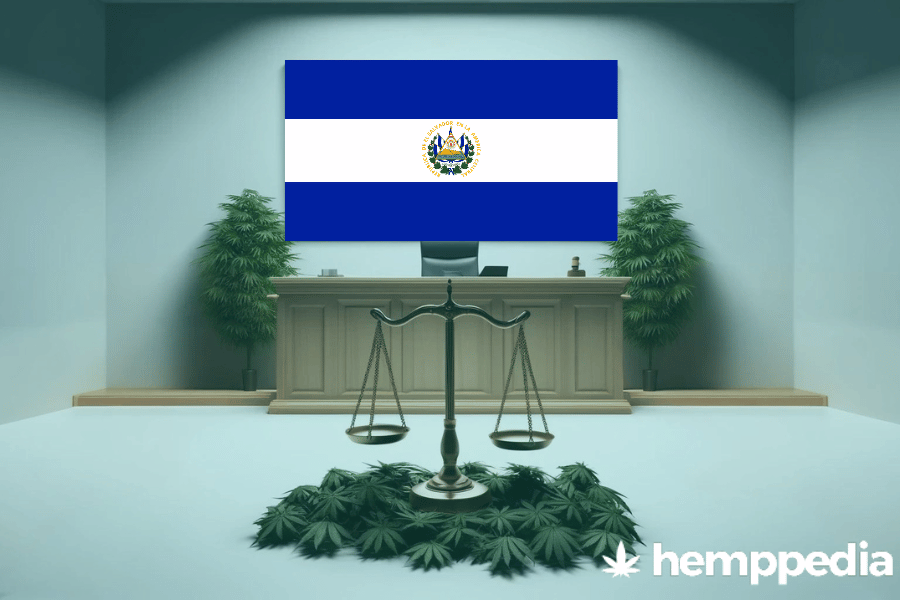TL;DR
In El Salvador, cannabidiol, commonly known as CBD, is technically classified under the same legislation as marijuana, making it illegal. That said, enforcement of these laws with regard to CBD specifically can often be unclear or inconsistent. This blog post will delve into the current legal situation of CBD in this Central American nation, provide historical context, and compare its legal status with other regions.
CBD at a glance
- Legal Status: Illegal
- Usage: Not allowed
- Possession Limits: No CBD possession allowed
- Distinctions from THC-containing products: None legally
Overview of CBD Legislation in El Salvador
El Salvador, being a signatory to multiple international drug conventions, considers any part of the Cannabis sativa plant, including CBD, as a narcotic substance under its national legislation. This remains the case irrespective of the THC content or whether it is derived from hemp or marijuana.
Historical Context
Much of El Salvador’s drug policy is founded on a desire to combat illegal drug trafficking and substance abuse. While changes in legislation have been witnessed globally in relation to CBD, El Salvador maintains a strict stance towards all cannabis derivatives.
Possession, Use, Cultivation and Sales
In El Salvador, possession, use, sale, or cultivation of CBD is illegal. This includes products imported or exported, regardless of their THC content or the intentions of the user.
Enforcement and Penalties
Fines, imprisonment, or both may be imposed for any CBD-related offenses. It’s important to note that El Salvador may differentiate penalties based on the amount possessed, with stricter penalties typically reserved for higher quantities.
Comparative Analysis
El Salvador’s stance on CBD contrasts with changes seen elsewhere. Many countries, particularly in North America and Europe, are pivoting to differentiate CBD from other cannabis products, often legalizing it for medical and sometimes recreational use. In Latin America, Mexico and Colombia stand out for having more liberal policies towards CBD.
Conclusion
El Salvador maintains its strict laws towards CBD in line with its broader drug policy. While other nations move towards recognizing the potential uses and benefits of CBD, El Salvador’s enforcement remains strict with any cannabis derivatives regardless of their uses or THC content. This scenario underlines the significant variations in CBD laws globally and the changing scenario regarding this substance worldwide.





